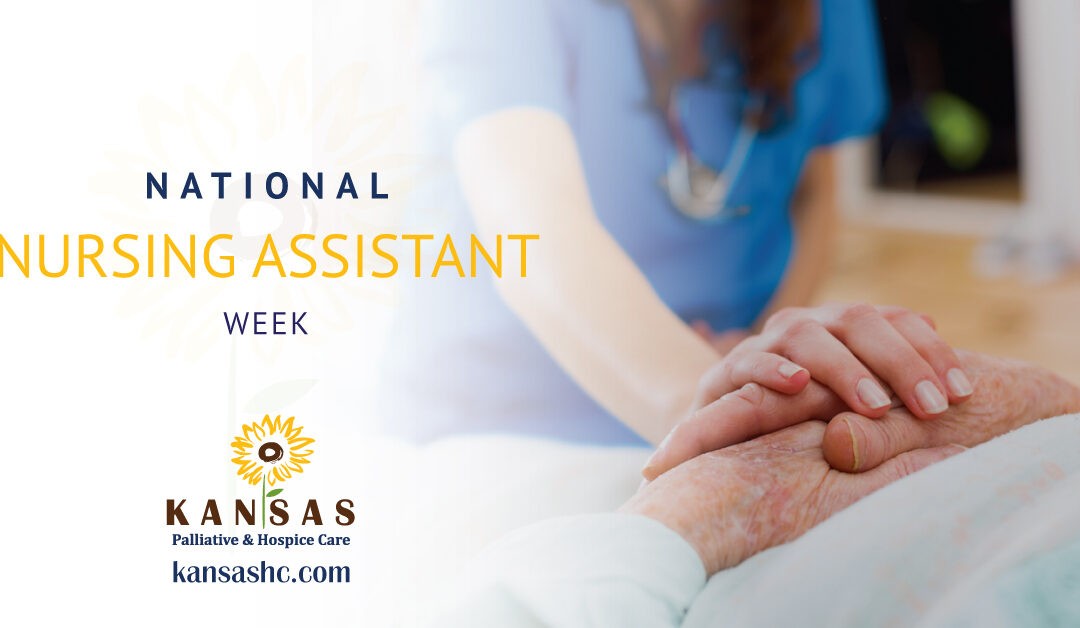National Nursing Assistant Week is June 17-24, 2021. We wanted to take some time to recognize the invaluable role nursing assistants play in delivering the best end-of-life care possible. National Nursing Assistant Week is a great time not only to show appreciation but it’s also an opportunity to foster and showcase the incredible things Certified Nursing Assistants (CNAs) do for their patients and the community as a whole. The week is intended to recognize the nursing assistants who dedicate so much of their lives to the well-being of their patients.
What is a CNA?
Certified Nursing Assistants play a vital role in the care of hospice patients. CNAs have a wide range of skills and wisdom about applying the principles of patient-centered care to daily caregiving. In fact, statistics show that every day, more than 2.5 million nursing assistants help elderly, frail, or chronically ill people living in nursing homes, their own homes, and other long-term care settings.
CNAs provide between 80-90% of the direct care that clients in long-term care facilities receive. This shows how dedicated, patient, and giving CNAs are.
The Role of a CNA
CNAs are able to make such a big impact in healthcare because they wear so many hats and have so many skills. CNAs are focused on providing daily care to enhance a patient’s daily life and in hospice care, make the patient’s final days as pleasant and comfortable as possible. CNAs take on daily tasks like:
- Feeding the patient
- Helping the patient with grooming and going to the bathroom
- Bathing the patient
- Keeping the patient’s living space tidy
- Helping with the set up of medical equipment
- Stocking medical supplies
But, most importantly, CNAs act as a conduit between the patient and the healthcare provider. Since CNAs interact with the patient daily, they are able to notice any changes or symptoms in the patient that need urgent attention. CNAs also become trusted confidantes of their patients and can help relay medical information to them and stress the importance of following the doctor’s instructions while answering any questions the patient may have.
Compassionate and experienced CNAs help patients experience less stress and more comfort during their in-home hospice or palliative care. This helps patients live out their lives with peace and comfort and, in turn, provides peace of mind to their loved ones.


